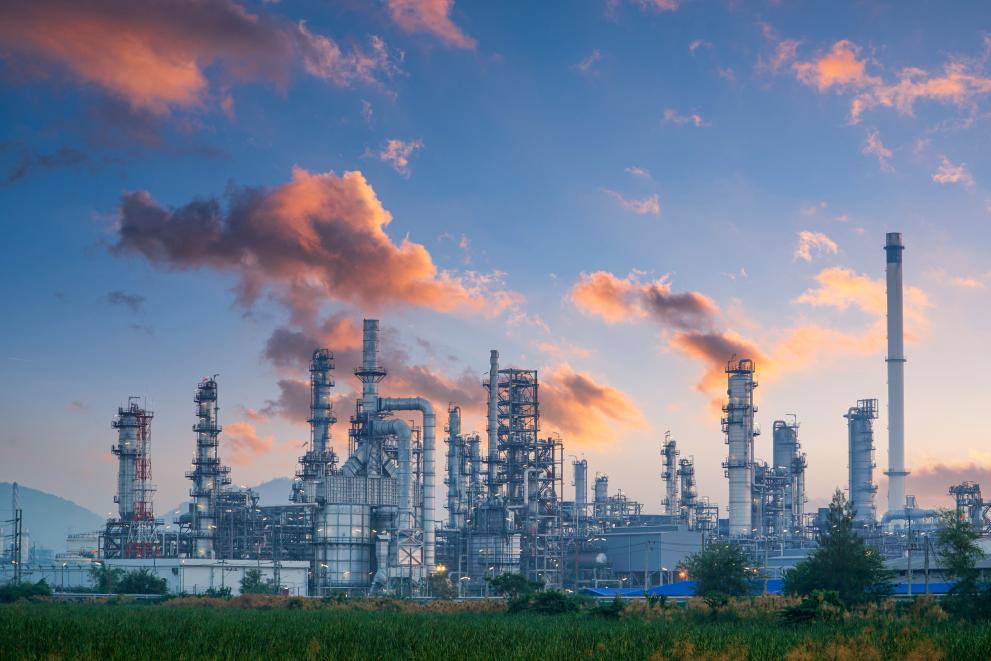In recent years, the global commitment to reducing greenhouse gas emissions has intensified, with a particular focus on curbing methane emissions the potent greenhouse gas responsible for approximately one-third of the total global warming to date. However, despite pledges from oil companies and governments to slash methane emissions, a recent report from the International Energy Agency (IEA) reveals a disheartening reality. In 2022, methane emissions from the fossil fuel industry not only continued to climb but also outpaced previous records, drawing sharp criticism from environmental advocates and experts.
The Profit Paradox:
Despite reaping record profits in the aftermath of Russia’s invasion of Ukraine, the oil and gas industry has failed to address the escalating methane emission crisis. The IEA condemns this lack of action, highlighting that the technology necessary to substantially reduce methane emissions already exists. Astonishingly, implementing these technologies would require only a minuscule fraction of the industry’s vast profits. As Fatih Birol, the executive director of the IEA, puts it, “Methane cuts are among the cheapest options to limit near-term global warming there is just no excuse.”
The Global Impact of Methane Emissions:
Methane emissions contribute significantly to global warming, trapping nearly 90 times as much heat as carbon dioxide during its first 20 years in the atmosphere. While it breaks down more rapidly than carbon dioxide, its short-term impact on climate change is substantial. The IEA estimates that the global energy industry released nearly 135 million metric tons of methane in 2022, surpassing the previous year’s levels and approaching the record set in 2019. Shockingly, routine oil and gas operations emit an equivalent of a significant event, like the Nord Stream explosions, every single day on average.
Feasible Solutions and Industry Responsibility:
Encouragingly, the IEA outlines that 75 percent of energy-related methane emissions can be eliminated with existing technologies, at a cost of approximately $100 billion. This is less than 3 percent of the profits earned by oil and gas companies in the previous year. The industry could implement solutions such as capturing and selling methane instead of venting it into the atmosphere. In the U.S., around 17 percent of emissions could be reduced at no net cost, according to IEA data.
Moreover, investing in advanced leak detection technologies and routine monitoring of wells, as proposed by the Environmental Protection Agency (EPA) in November 2021, can significantly contribute to the reduction of methane emissions. The industry has the means to deploy these measures promptly, and their implementation could be a turning point in mitigating the impact of methane on our environment.
The Regulatory Landscape:
While the Biden administration has committed to addressing methane emissions, regulatory measures are still pending finalization. The EPA’s proposed regulations, unveiled in November 2021, aim to enforce routine monitoring of all wells, advanced leak detection technologies, and responsible methane use instead of venting. These regulations are crucial in ensuring accountability within the industry, but their finalization remains a work in progress, leaving a regulatory gap.
The Inflation Reduction Act, enacted last year, provides a backstop should the proposed regulations be diluted or take too long to implement. Large oil and gas facilities will face fines of $900 for every metric ton of methane they release, beginning next year. This serves as a financial incentive for companies to prioritize emission reduction efforts and underscores the urgency of addressing this environmental crisis.
Environmental and Climate Impact:
The consequences of unbridled methane emissions are profound. Methane traps nearly 90 times more heat than carbon dioxide during its initial 20 years in the atmosphere, contributing significantly to the acceleration of global warming. While the gas breaks down within decades, the short-term impact is critical in the context of the ongoing transition away from fossil fuels. Urgent action to curb methane emissions can provide immediate relief in the fight against climate change, buying valuable time as the world endeavors to move beyond its dependence on fossil fuels.
Social Responsibility and Public Awareness:
As the environmental toll of methane emissions becomes increasingly apparent, there is a growing expectation for fossil fuel producers to demonstrate social responsibility. The public is becoming more environmentally conscious, demanding accountability from industries that contribute significantly to climate change. Fossil fuel companies, in particular, are under scrutiny, and their response to the methane crisis will shape public perception and influence consumer choices.
Collaborative Efforts and Global Cooperation:
Addressing the methane emission crisis requires a collaborative effort on a global scale. Governments, industries, and environmental organizations must work together to implement and enforce effective measures. International cooperation is crucial in setting standards and holding nations accountable for their contributions to the methane problem. The urgency of the situation demands swift and decisive action, transcending geopolitical boundaries for the greater good of the planet.
Conclusion:
In conclusion, the surge in methane emissions poses a critical challenge to the global effort to combat climate change. The fossil fuel industry, in particular, stands at a crossroads, with the opportunity to lead in environmental stewardship. The IEA’s call for accountability reverberates as a stark reminder that short-term profits cannot take precedence over the long-term well-being of our planet. As the urgency to address climate change intensifies, the fossil fuel industry and policymakers must collaborate swiftly to implement meaningful actions. The world is watching, and the time for change is now. Only through collective and decisive efforts can we hope to mitigate the impact of methane emissions and secure a sustainable future for generations to come.

